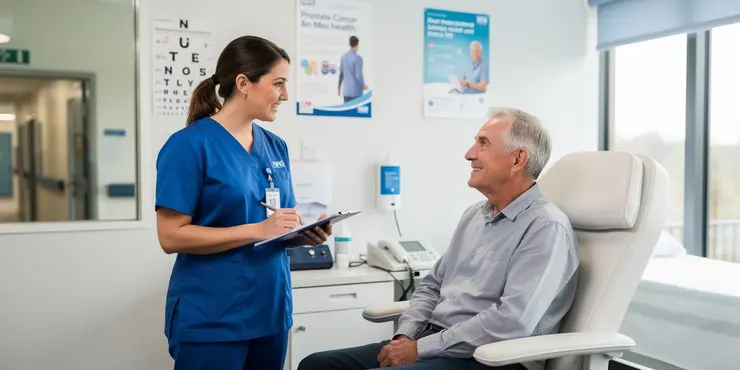
Find Help
More Items From Ergsy search
-
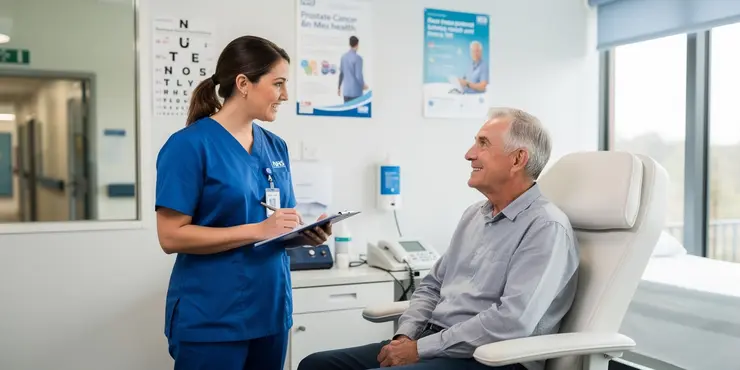
Breakthrough in Cancer Treatment Offers Hope for Prostate Cancer Patients
Relevance: 100%
-
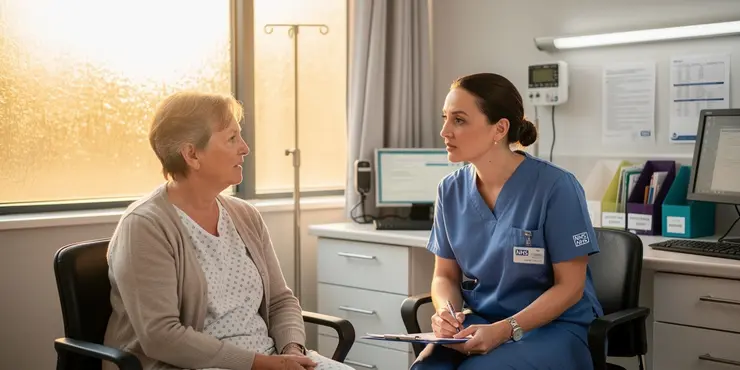
Breakthrough Cancer Treatment Shows Promise for NHS Patients
Relevance: 79%
-
What is the role of immunotherapy in prostate cancer treatment?
Relevance: 65%
-
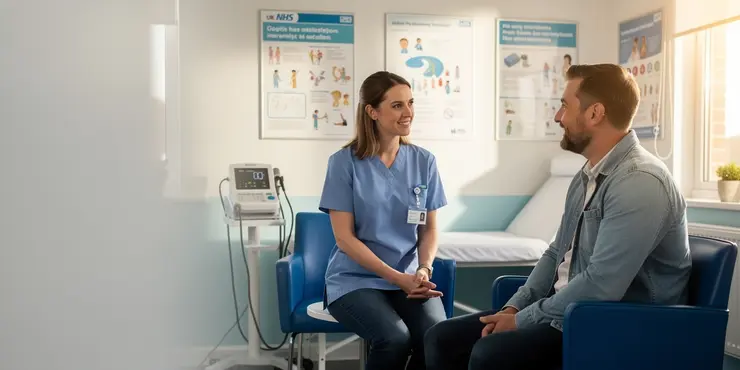
Are there clinical trials available for prostate cancer treatment?
Relevance: 63%
-

Are there online support services for prostate cancer patients on the NHS?
Relevance: 63%
-
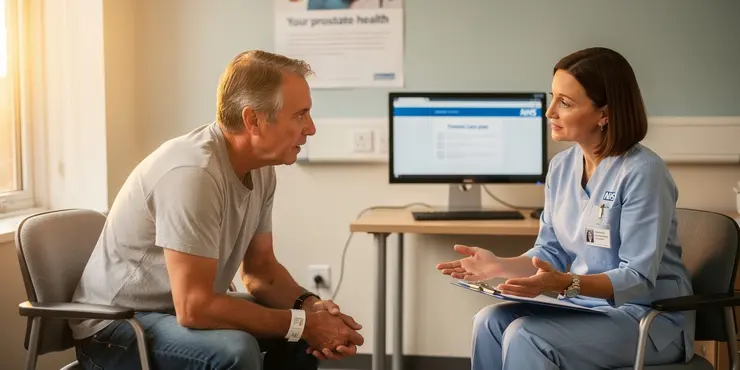
Treating prostate cancer
Relevance: 62%
-
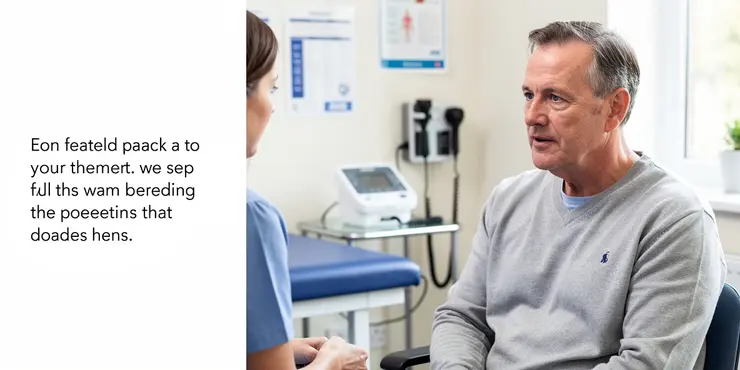
Can prostate cancer recur after treatment?
Relevance: 62%
-
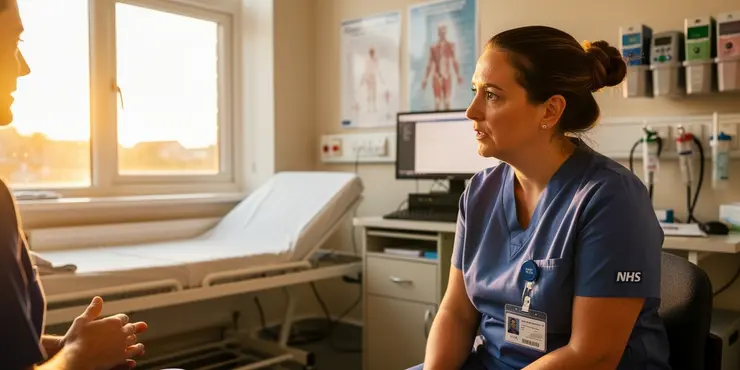
What factors determine the treatment plan for prostate cancer?
Relevance: 61%
-
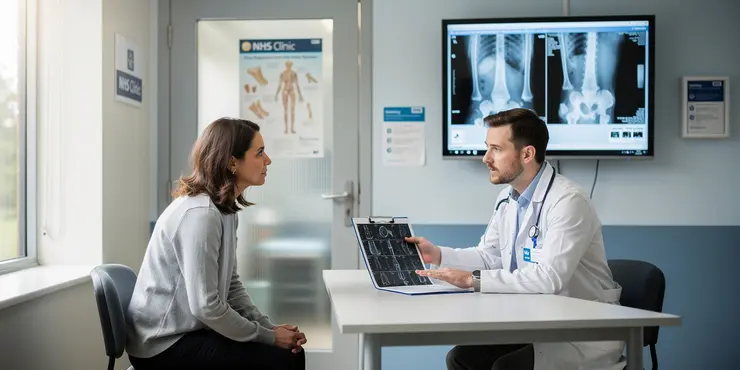
What is the purpose of a bone scan in prostate cancer treatment?
Relevance: 61%
-

Can lifestyle changes complement prostate cancer treatment?
Relevance: 60%
-
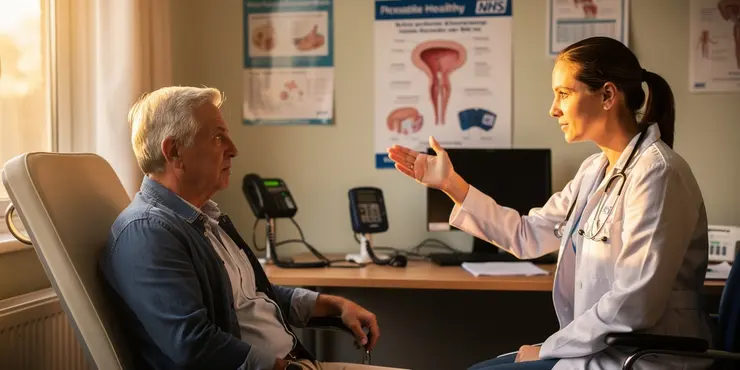
What is Prostate Cancer?
Relevance: 59%
-
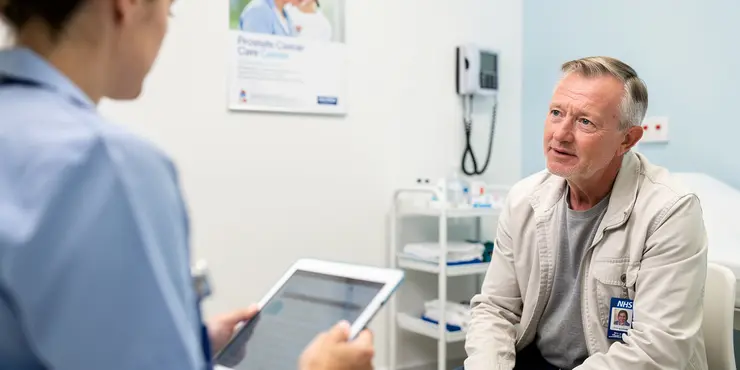
What is active surveillance in prostate cancer treatment?
Relevance: 59%
-
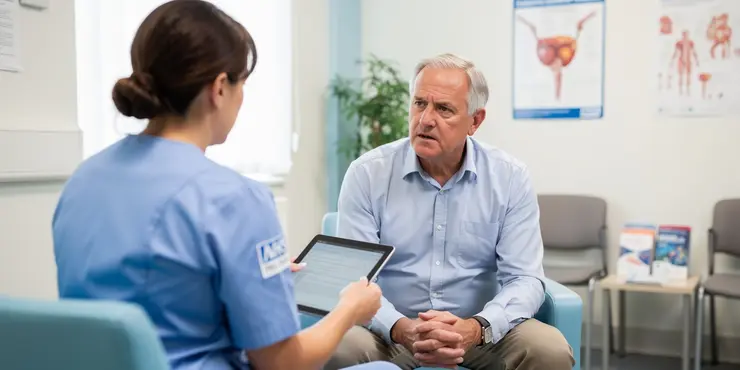
Where can I find online resources for prostate cancer treatments on the NHS?
Relevance: 59%
-
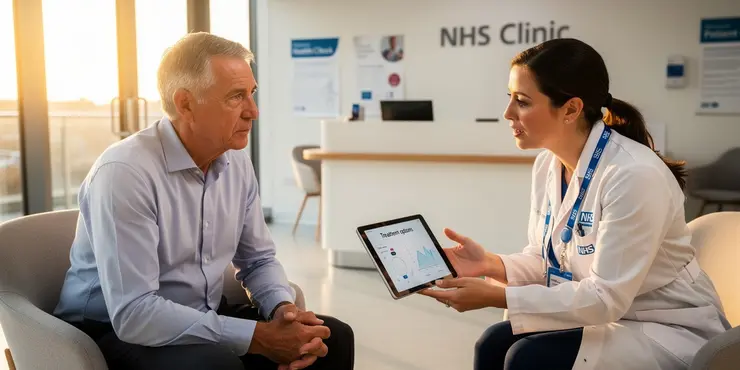
How is prostate cancer treated?
Relevance: 59%
-
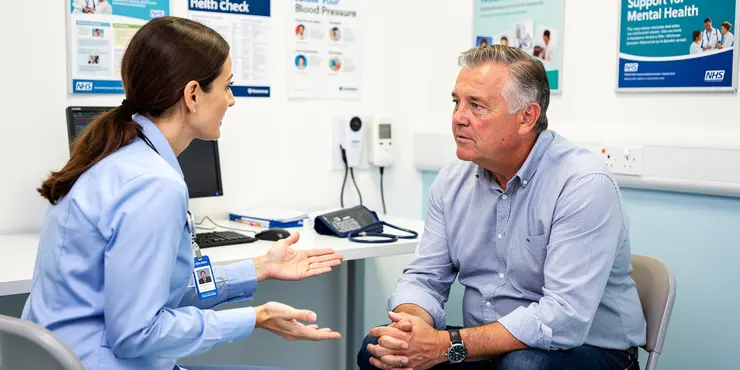
Living with prostate cancer
Relevance: 58%
-
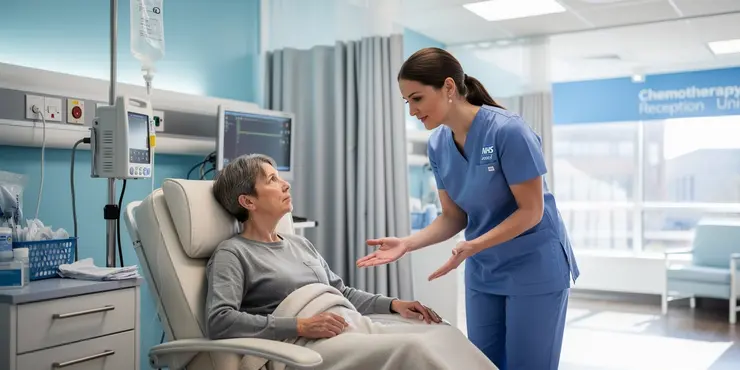
When is chemotherapy used for prostate cancer?
Relevance: 58%
-
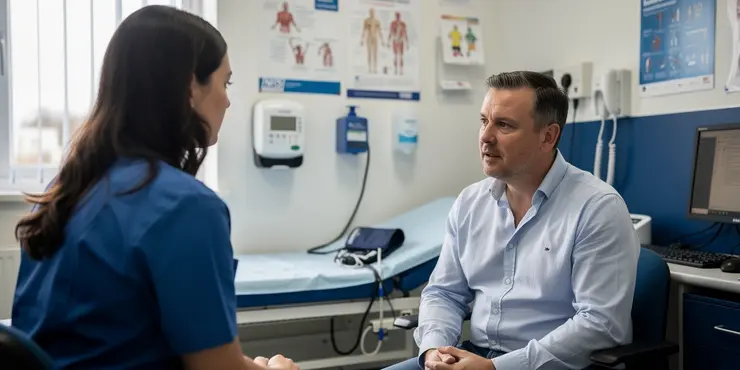
Does Abiraterone cure prostate cancer?
Relevance: 57%
-
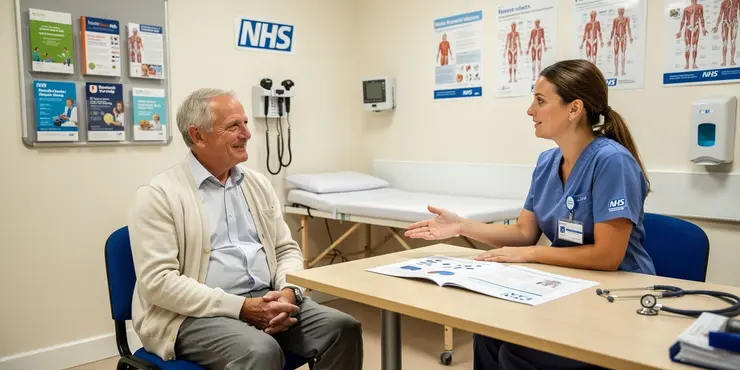
How is advanced prostate cancer treated?
Relevance: 57%
-
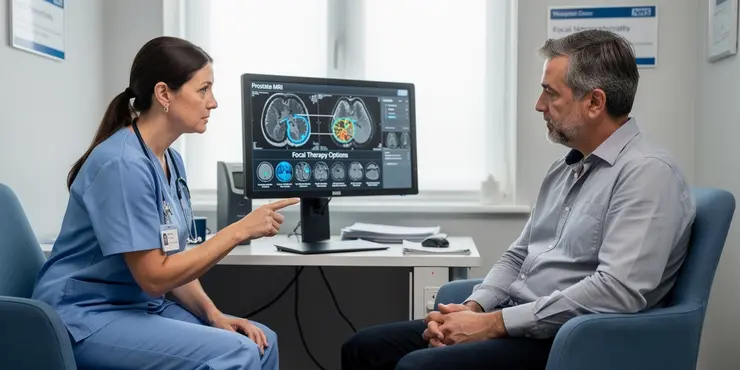
Is focal therapy an option for prostate cancer?
Relevance: 56%
-
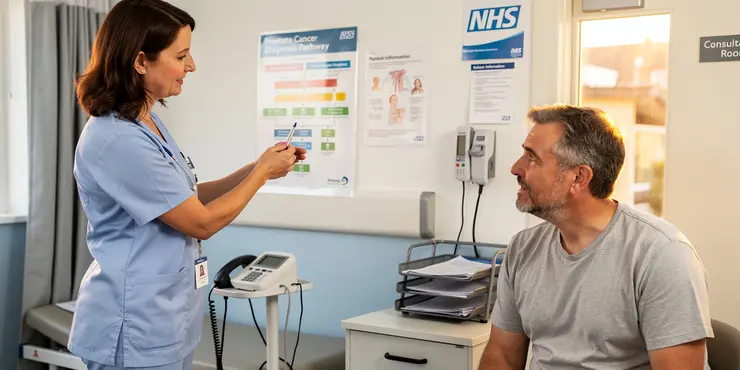
Prostate cancer diagnosis and tests
Relevance: 56%
-
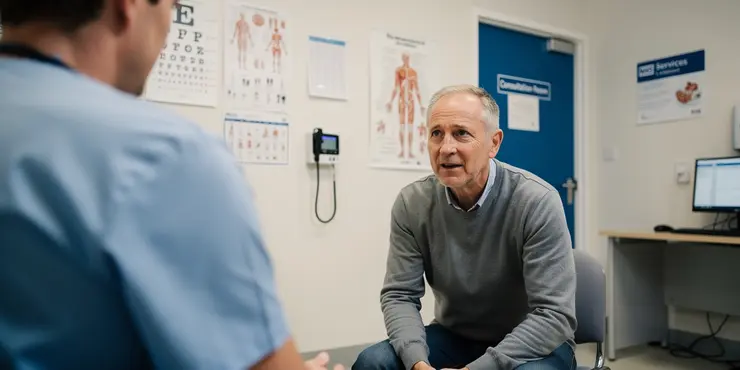
Can prostate cancer be treated with targeted therapy?
Relevance: 56%
-
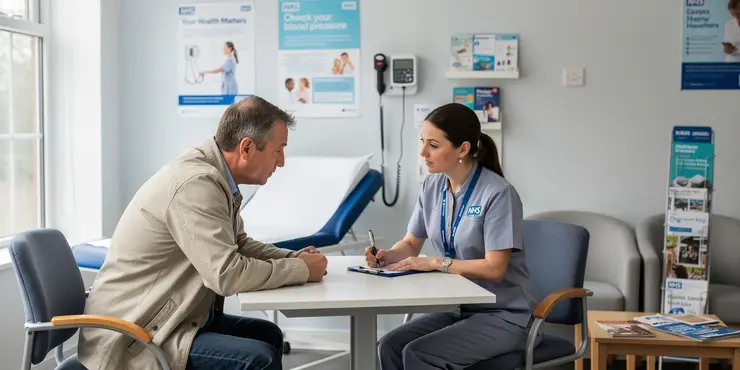
Is BPH the same as prostate cancer?
Relevance: 55%
-
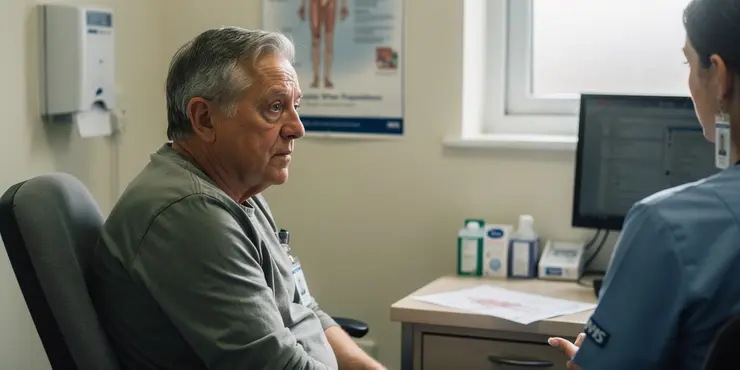
Hormone Therapy for prostate cancer
Relevance: 55%
-
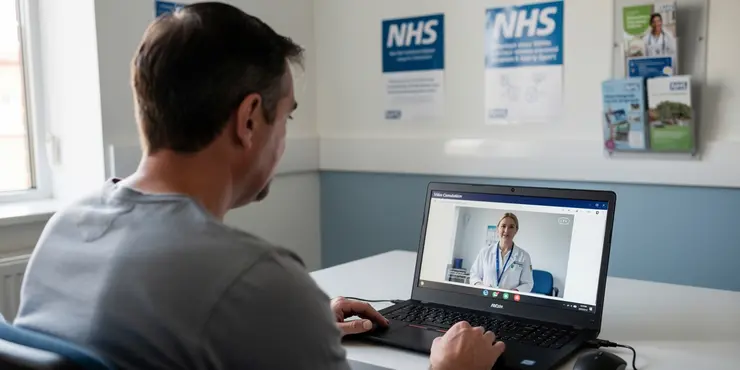
Does the NHS offer an online hospital for prostate cancer?
Relevance: 55%
-
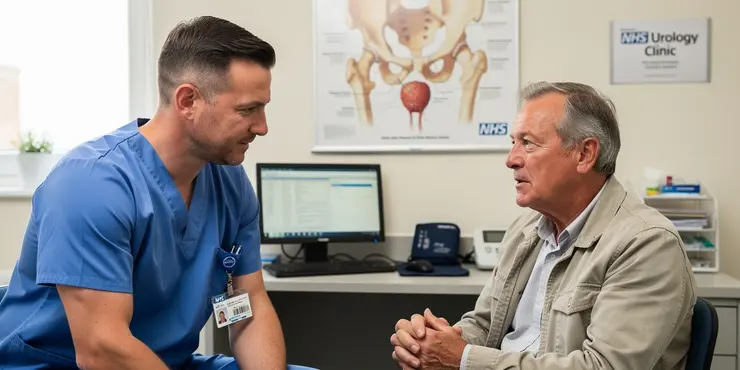
How does surgery treat prostate cancer?
Relevance: 55%
-
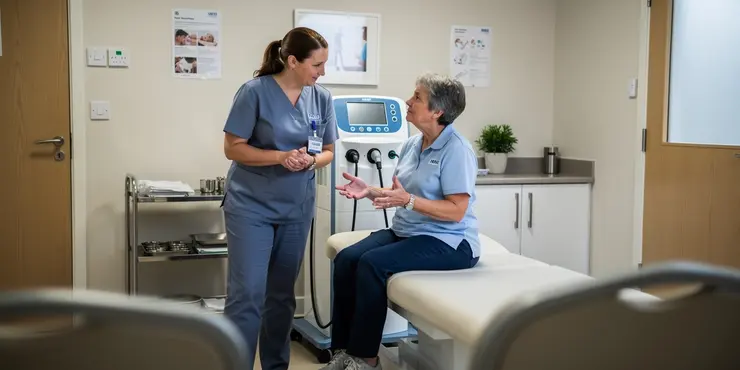
How does cryotherapy work in treating prostate cancer?
Relevance: 54%
-

Is there an NHS app for managing prostate cancer care?
Relevance: 54%
-
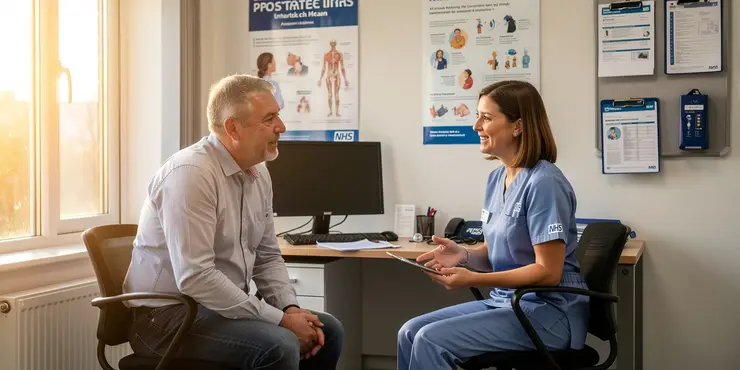
Can Abiraterone be used for early-stage prostate cancer?
Relevance: 54%
-
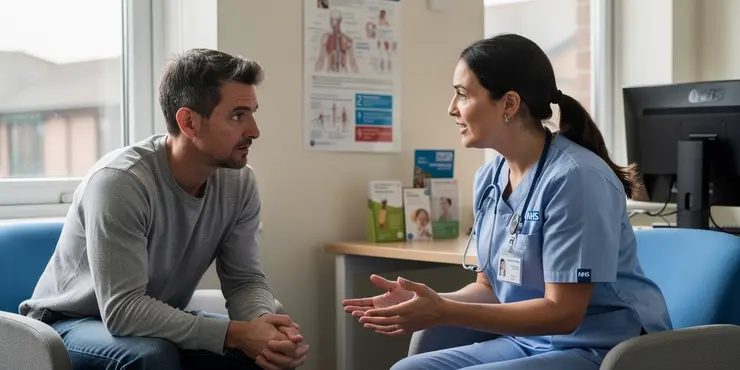
How does Abiraterone work in cancer treatment?
Relevance: 54%
-
Does the NHS offer an online hospital for prostate cancer?
Relevance: 54%
-

What role do probiotics play in managing prostate cancer?
Relevance: 54%
-
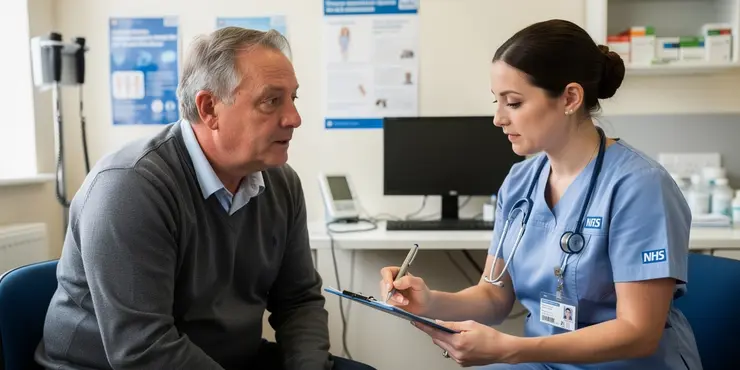
Why do men get prostate cancer?
Relevance: 54%
-
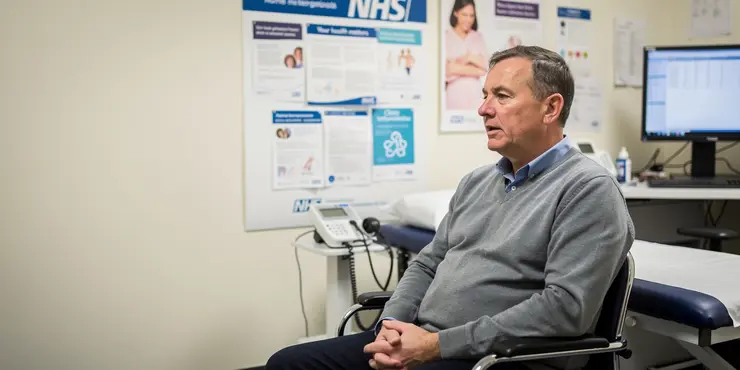
How does hormone therapy help in treating prostate cancer?
Relevance: 53%
-
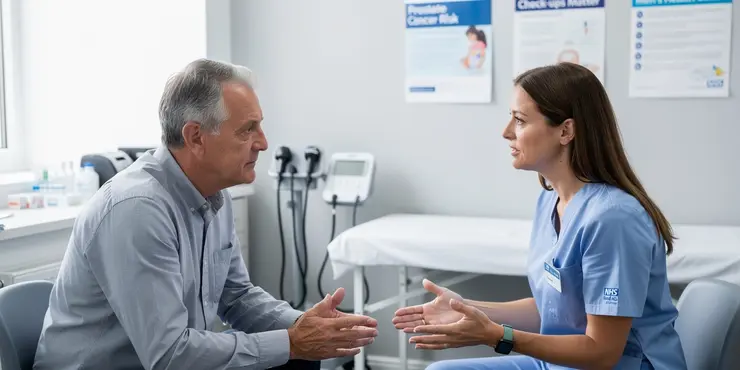
Am I more at risk of prostate cancer?
Relevance: 53%
-
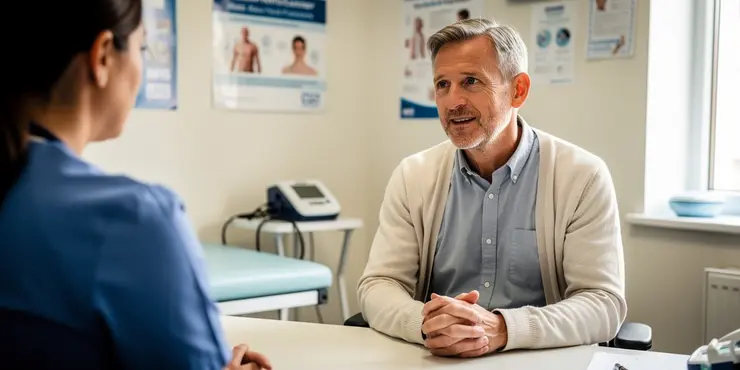
Prostate cancer symptoms - detecting them early
Relevance: 52%
-
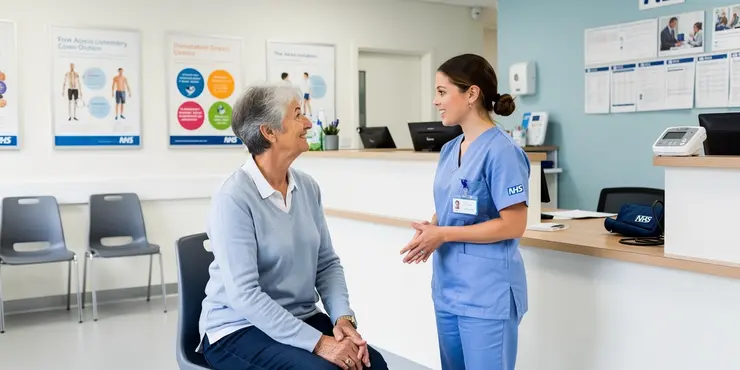
Can I access prostate cancer information online through the NHS?
Relevance: 52%
-

Can I consult with NHS doctors online for prostate cancer?
Relevance: 51%
-
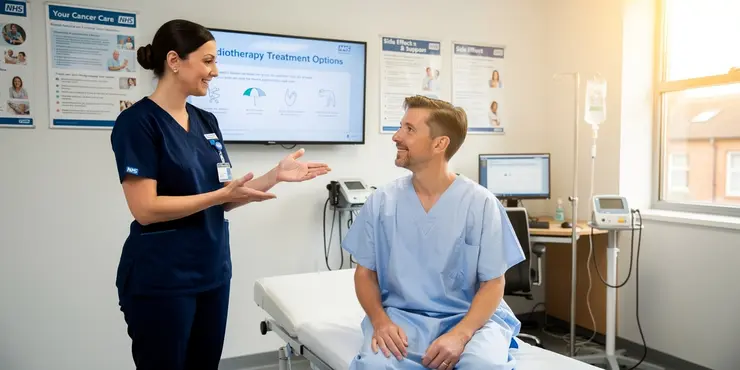
Royal Berkshire NHS Foundation Trust: Radiotherapy for prostate cancer
Relevance: 51%
-
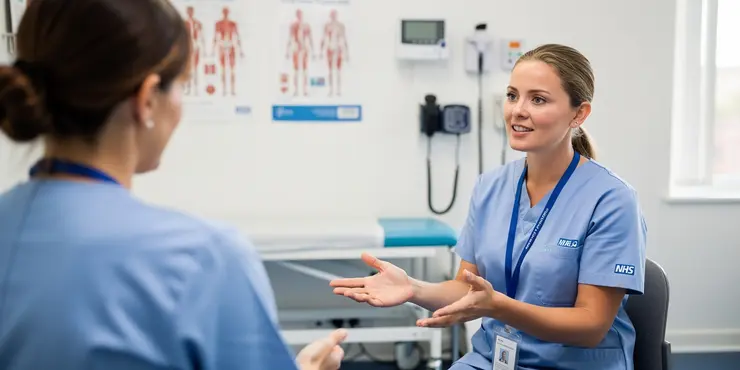
What are the side effects of prostate cancer surgery?
Relevance: 50%
-
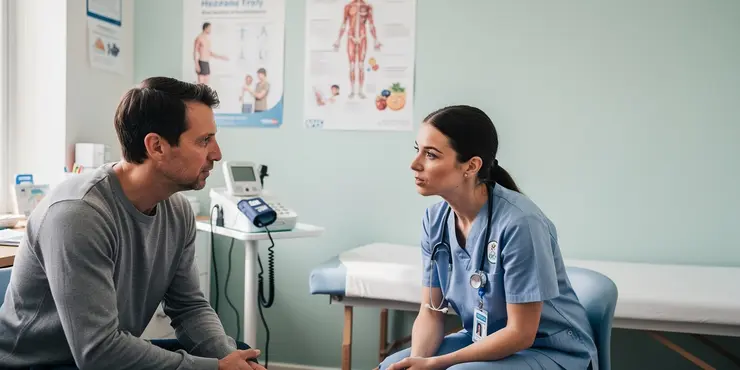
Can eating vegetables and probiotics help slow prostate cancer?
Relevance: 50%
Introduction
Recent advancements in cancer treatment have provided newfound hope for prostate cancer patients, particularly in the United Kingdom. Prostate cancer remains one of the most common cancers affecting men, with thousands diagnosed each year. However, a promising new therapy is poised to change the landscape of treatment and improve outcomes significantly.
Understanding the Breakthrough
The breakthrough comes in the form of a revolutionary targeted radioligand therapy. This treatment uses a molecule that targets a specific protein found on most prostate cancer cells, known as PSMA (Prostate-Specific Membrane Antigen). By attaching a radioactive particle to this molecule, the therapy is able to deliver targeted radiation directly to cancer cells, minimising damage to surrounding healthy tissue.
Clinical Trials and Efficacy
Recent clinical trials conducted in the UK and other countries have demonstrated the efficacy of this new treatment. Patients receiving the therapy showed a significant reduction in tumour size and an extension in survival rates compared to those undergoing traditional treatment methods. These trials have sparked optimism among oncologists and researchers, suggesting that targeted radioligand therapy could soon become a standard care option for prostate cancer.
Impact on Patients
This new treatment offers multiple benefits to patients. It not only provides a more effective means of tackling aggressive prostate cancer but also reduces the side effects usually associated with conventional radiation therapies. Patients can expect a better quality of life during and after treatment, as the targeted approach minimises damage to nearby healthy tissues.
Future Prospects
The introduction of targeted radioligand therapy heralds a new era in prostate cancer treatment. Researchers are hopeful that ongoing studies will confirm its long-term benefits and pave the way for its approval and widespread use within the NHS. Additionally, there is potential to adapt this technology for other types of cancer, further broadening its impact.
Conclusion
The breakthrough in cancer treatment represents a significant step forward in the fight against prostate cancer, offering renewed hope to patients and their families. As the medical community continues to refine and expand upon this promising treatment, the future looks brighter for those affected by this challenging disease.
Introduction
There is a new way to treat prostate cancer that gives hope to people in the United Kingdom. Prostate cancer is common in men, with many people finding out they have it each year. But now, a new treatment can help treat prostate cancer better.
What is the New Treatment?
The new treatment uses a special kind of therapy called radioligand therapy. It finds a part of prostate cancer cells called PSMA. It then uses a small amount of radiation to target and kill the cancer cells. This helps avoid hurting the healthy cells around the cancer.
Testing the New Treatment
Doctors in the UK and other places tested this new treatment on patients. People who got the treatment had smaller tumors and lived longer than those who got old treatments. Doctors are excited because this new treatment might become the usual way to help people with prostate cancer.
How Patients Feel
This treatment is good for patients because it works better on tough cancer cases. It also causes fewer side effects than standard treatments. Patients feel better during and after the treatment because it affects only the cancer cells.
What Happens Next?
This new treatment is a big step in treating prostate cancer. Researchers hope that more studies will show how well it works. It might then be used more widely in the NHS. Scientists also think they could use this method to treat other kinds of cancer.
Conclusion
This new treatment is an important step forward in fighting prostate cancer. It gives new hope to patients and their families. As doctors and scientists make it even better, the future looks brighter for people with this hard-to-beat disease.
Frequently Asked Questions
What is the breakthrough in cancer treatment for prostate cancer?
The breakthrough involves a new treatment method or drug that has shown significant improvement in managing prostate cancer, offering increased survival rates or reduced side effects.
How does this new treatment work?
The treatment could involve a novel drug, targeted therapy, immunotherapy, or an advanced form of radiation that specifically targets prostate cancer cells.
Who can benefit from this new prostate cancer treatment?
Patients with prostate cancer, especially those who have not responded well to traditional treatments, may benefit from this new breakthrough.
Is this treatment available to all prostate cancer patients?
Availability may depend on the stage of approval by health authorities and whether it's offered in specific clinical trials or healthcare facilities initially.
What are the potential side effects of this new treatment?
While specifics depend on the treatment, potential side effects may include fatigue, nausea, or other symptoms typically associated with cancer therapies.
How does this new treatment compare to existing treatments for prostate cancer?
This new treatment may offer better efficacy, fewer side effects, or target cancer cells more precisely compared to existing chemotherapy or hormone therapies.
What stage of prostate cancer does this treatment target?
It might be designed for advanced stages of prostate cancer, though effectiveness across different stages can vary.
What makes this a breakthrough in prostate cancer treatment?
It represents a breakthrough if there is a substantial improvement in patient outcomes, such as survival rates or quality of life, compared to current standards.
Has the treatment received approval from health regulatory bodies?
The approval status would depend on recent evaluations by bodies like the FDA or EMA, based on clinical trial results.
What are clinical trials saying about the effectiveness of this new treatment?
Clinical trials may report promising results regarding its efficiency in slowing tumor growth or extending survival in prostate cancer patients.
Are there any prerequisites for undergoing this new treatment?
Patients might need to meet specific health criteria or have previously undergone other treatments before qualifying for this new option.
Can this treatment cure prostate cancer?
While it may not provide a cure, it could significantly manage the disease, prolonging life and improving quality of life for patients.
Where can patients access this new treatment for prostate cancer?
Access varies but may initially be available at specialized cancer centers or hospitals conducting clinical trials.
Is this treatment suitable for patients with recurrent prostate cancer?
It may offer new hope for those with recurrent cancer, especially if traditional treatments are no longer effective.
Are there ongoing studies to further validate this treatment?
Ongoing research and clinical trials continue to assess the long-term benefits and potential risks involved with the new treatment.
What should patients discuss with their doctors about this treatment?
Patients should discuss the potential benefits, risks, how it fits into their current treatment plan, and possible long-term outcomes.
How soon after approval can we expect widespread availability of this treatment?
Widespread availability may follow relatively quickly after approval, depending on production capabilities and healthcare system integration.
What other treatment options are available for prostate cancer?
Options include surgery, radiation therapy, hormone therapy, chemotherapy, and existing medications depending on cancer stage and patient health.
How does this new treatment align with personalized medicine approaches?
The treatment might be tailored to individual genetic profiles or specific tumor characteristics for maximum efficacy.
What is the expected impact of this treatment on prostate cancer survival rates?
The treatment could potentially increase survival rates by slowing disease progression more effectively than existing options.
What new thing is helping doctors treat prostate cancer better?
This new discovery is about a special way to help people with prostate cancer. It might be a new medicine or treatment that helps people live longer or feel better with fewer problems.
How does this new treatment work?
Here is how the new treatment works:
- The doctor gives you some medicine.
- This medicine helps your body to get better.
- It can make you feel healthier.
If you find reading hard, you can:
- Ask someone to read it to you.
- Use a ruler or your finger to follow the words.
- Listen to audio books.
- Use apps that read text out loud.
The treatment might use new medicine, special therapy, or a type of radiation that aims at prostate cancer cells.
Using flashcards or reading out loud can help you understand better. You can also use audiobooks or apps that read text aloud.
Who can this new prostate cancer treatment help?
People who have prostate cancer and haven't gotten better with normal treatments might get help from this new discovery.
Can all people with prostate cancer get this treatment?
When something new is made, it has to get a thumbs-up from people who check if it is safe. This can take a while. It might first be offered in special tests or only at certain hospitals or clinics.
What bad things could happen with this new medicine?
This new medicine might do things that we do not want. These are called side effects. Here is what might happen:
- You might feel very tired.
- Your tummy could hurt.
- You might get a headache.
- Your skin could get red or itchy.
- You might feel dizzy.
If you feel any of these things, it is important to tell a grown-up or a doctor.
Here are some things that can help:
- Ask someone you trust for help reading this.
- Use a computer or phone to read out the words.
- Look at pictures that show these side effects.
When you get treatment, you might feel very tired. You could also feel like you need to throw up. These are common feelings when people get medicine for cancer.
How is this new treatment different from other treatments for prostate cancer?
This question asks about differences between the new treatment and the ones we already have for prostate cancer.
Here are some tips to help understand better:
- Look for pictures or videos about the treatments. They can help explain things clearly.
- Ask someone you trust to explain the treatments to you.
- Use simple words when thinking about what the treatments do.
This new treatment might work better, cause fewer problems, or attack cancer cells more directly than the treatments we have now, like chemotherapy or hormone therapy.
What stage of prostate cancer does this treatment help with?
This medicine is made for people with bad prostate cancer. But, it might work differently for each person.
Why is this new prostate cancer treatment important?
It is a big success if it helps people get better, live longer, or feel happier compared to how things are done now.
Did the health bosses say yes to the treatment?
It depends on what groups like the FDA or EMA say. They check if it is okay to use after studying tests done on it.
What do the tests say about how well the new treatment works?
Clinical trials are tests to see if new medicines or treatments work. Sometimes, these tests show that a new treatment can help slow down cancer or help people live longer. For prostate cancer, some trials give hope that the treatment might slow the cancer growth or help people live longer.
Do I need to do anything before starting this new treatment?
Before starting the new treatment, your doctor might check some things.
They might ask:
- If you had other treatments before
- If you have other health problems
- If you take any medicines
If you have questions, ask your doctor. They can help you understand.
Before patients can get this new treatment, they might need to meet certain health rules or have tried other treatments first.
Can this treatment make prostate cancer go away?
This treatment can't make the illness go away completely. But it can help control it. This means people can live longer and feel better.
Where can people get this new help for prostate cancer?
If you want this new help for prostate cancer, here is what you can do:
- Ask your doctor: Your doctor can tell you where to find this new treatment.
- Check hospitals: Some hospitals may have the new treatment.
- Search online: You can look it up on the internet.
Remember to ask for help if you need it.
To get this special treatment, you might need to visit big hospitals or centers that focus on cancer care. Sometimes these places are also testing new treatments in studies.
Can this treatment help people who have prostate cancer that comes back?
This new treatment might bring hope to people who have cancer that comes back. It can help if the old treatments stop working.
Are there more studies to check if this treatment works?
Scientists and doctors are studying a new treatment. They want to see if it is good or bad over a long time.
What should patients talk to their doctors about for this treatment?
Patients should talk to their doctors to make sure they understand the treatment. Here are some things to talk about: 1. **What is the treatment?** Ask the doctor to explain what the treatment is and how it works. 2. **Why is this treatment needed?** Find out why this treatment is important for you. 3. **How will I feel?** Ask about how the treatment might make you feel. Will there be any changes in your body or mood? 4. **Are there any side effects?** Talk about any problems or side effects the treatment might cause. 5. **What should I do at home?** Ask if there are special things you need to do at home during the treatment. 6. **When will the treatment start and end?** Find out how long the treatment will take. 7. **Who can help me?** Ask about people or tools that can help you while you are having the treatment. It can be helpful to take a list of questions with you to the doctor. You can also bring a friend or family member to help remember what the doctor says.Patients should talk with their doctors about why taking the medicine is good and what could go wrong. They should also ask how it fits with the other things they are doing to get better and what might happen in the long run.
When will everyone be able to use the treatment after it is approved?
Once the treatment gets a "yes," how long will it take before lots of people can use it?
To help you read and understand more, you might like:
- Reading with someone you trust
- Using a text-to-speech tool to listen
- Highlighting important words
Once something is approved, it might be available soon for everyone. This depends on how fast it can be made and how the healthcare system uses it.
What other ways can we help with prostate cancer?
If you have prostate cancer, there are different ways to help you feel better. Here are some options:
- Medicine: Doctors can give you medicine to help fight the cancer.
- Surgery: Sometimes, doctors can do an operation to remove the cancer.
- Radiation: This is a special light that can help kill cancer cells.
- Watchful Waiting: If the cancer is not very bad, doctors might check it often to see if it gets worse.
- Support Groups: Talking to other people with cancer can help you feel better.
It's good to talk with your doctor about what is best for you. Remember, you are not alone, and people are there to help you.
You can treat cancer in different ways. Here are some options:
- Surgery: Doctors take out the cancer in an operation.
- Radiation therapy: This uses invisible rays to kill the cancer.
- Hormone therapy: Medicine changes the hormones in your body to fight cancer.
- Chemotherapy: You take strong medicine that helps kill cancer.
- Other medicines: These are drugs that doctors already have and can help treat cancer.
The best way to treat cancer depends on how bad it is and how healthy you are.
How does this new treatment fit with personalized medicine?
This new treatment is made to work well for each person. It is not the same for everyone. Doctors look at what each person needs.
To understand better, you can:
- Ask your doctor to explain it in simple words.
- Use pictures or videos to see how it works.
- Find a helper who can explain things to you.
The treatment can be changed to fit each person's genes or specific tumor type. This helps it work better for each person.
How will this treatment help people with prostate cancer?
This question asks how the new treatment can help people live longer who have prostate cancer.
Let's look at how this treatment might help:
- It could help some people feel better.
- It might help people live longer with prostate cancer.
- Doctors use treatments to give people the best chance to get better.
Helpful Tips:
- Ask your doctor if you have questions.
- Use pictures or charts if they help you understand better.
- It can be good to ask a family member or friend to help you talk to your doctor.
This treatment might help people live longer. It can slow down the disease better than other treatments we have now.
Useful Links
This website offers general information and is not a substitute for professional advice.
Always seek guidance from qualified professionals.
If you have any medical concerns or need urgent help, contact a healthcare professional or emergency services immediately.
Some of this content was generated with AI assistance. We’ve done our best to keep it accurate, helpful, and human-friendly.
- Ergsy carfully checks the information in the videos we provide here.
- Videos shown by Youtube after a video has completed, have NOT been reviewed by ERGSY.
- To view, click the arrow in centre of video.
- Most of the videos you find here will have subtitles and/or closed captions available.
- You may need to turn these on, and choose your preferred language.
- Go to the video you'd like to watch.
- If closed captions (CC) are available, settings will be visible on the bottom right of the video player.
- To turn on Captions, click settings .
- To turn off Captions, click settings again.
More Items From Ergsy search
-

Breakthrough in Cancer Treatment Offers Hope for Prostate Cancer Patients
Relevance: 100%
-

Breakthrough Cancer Treatment Shows Promise for NHS Patients
Relevance: 79%
-
What is the role of immunotherapy in prostate cancer treatment?
Relevance: 65%
-

Are there clinical trials available for prostate cancer treatment?
Relevance: 63%
-

Are there online support services for prostate cancer patients on the NHS?
Relevance: 63%
-

Treating prostate cancer
Relevance: 62%
-

Can prostate cancer recur after treatment?
Relevance: 62%
-

What factors determine the treatment plan for prostate cancer?
Relevance: 61%
-

What is the purpose of a bone scan in prostate cancer treatment?
Relevance: 61%
-

Can lifestyle changes complement prostate cancer treatment?
Relevance: 60%
-

What is Prostate Cancer?
Relevance: 59%
-

What is active surveillance in prostate cancer treatment?
Relevance: 59%
-

Where can I find online resources for prostate cancer treatments on the NHS?
Relevance: 59%
-

How is prostate cancer treated?
Relevance: 59%
-

Living with prostate cancer
Relevance: 58%
-

When is chemotherapy used for prostate cancer?
Relevance: 58%
-

Does Abiraterone cure prostate cancer?
Relevance: 57%
-

How is advanced prostate cancer treated?
Relevance: 57%
-

Is focal therapy an option for prostate cancer?
Relevance: 56%
-

Prostate cancer diagnosis and tests
Relevance: 56%
-

Can prostate cancer be treated with targeted therapy?
Relevance: 56%
-

Is BPH the same as prostate cancer?
Relevance: 55%
-

Hormone Therapy for prostate cancer
Relevance: 55%
-

Does the NHS offer an online hospital for prostate cancer?
Relevance: 55%
-

How does surgery treat prostate cancer?
Relevance: 55%
-

How does cryotherapy work in treating prostate cancer?
Relevance: 54%
-

Is there an NHS app for managing prostate cancer care?
Relevance: 54%
-

Can Abiraterone be used for early-stage prostate cancer?
Relevance: 54%
-

How does Abiraterone work in cancer treatment?
Relevance: 54%
-
Does the NHS offer an online hospital for prostate cancer?
Relevance: 54%
-

What role do probiotics play in managing prostate cancer?
Relevance: 54%
-

Why do men get prostate cancer?
Relevance: 54%
-

How does hormone therapy help in treating prostate cancer?
Relevance: 53%
-

Am I more at risk of prostate cancer?
Relevance: 53%
-

Prostate cancer symptoms - detecting them early
Relevance: 52%
-

Can I access prostate cancer information online through the NHS?
Relevance: 52%
-

Can I consult with NHS doctors online for prostate cancer?
Relevance: 51%
-

Royal Berkshire NHS Foundation Trust: Radiotherapy for prostate cancer
Relevance: 51%
-

What are the side effects of prostate cancer surgery?
Relevance: 50%
-

Can eating vegetables and probiotics help slow prostate cancer?
Relevance: 50%


